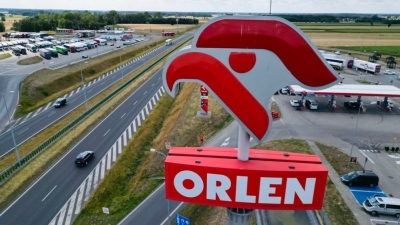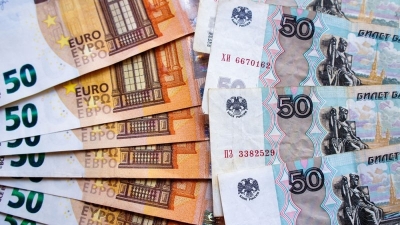Look at EU’s De-risking from China with the eyes of European Business Community

German Chancellor Olaf Scholz just concluded his three-day visit to China with a high-profile business delegation, which attracted great attention from both China and the EU.
Being in Brussels, I often feel the flow of two currents moving back and forth between China and the EU, one being the cold current of the EU’s de-risking from China, but more recently, the warm current brought by the European business community to China-EU trade and economic relations.
The business delegation accompanying the German Chancellor includes executives from Mercedes-Benz, BMW, ThyssenKrupp, Siemens and others. The positive comments they made during this visit showcased business community’s opposition to protectionist practices targeting China and good wishes to maintain and expand trade and economic cooperation with China.
“What we can’t have as an exporting nation are increasing barriers to trade. The best protection is to be competitive,” said Mercedes boss Ole Källenius to ARD, “China is an opportunity rather than a risk. German-Chinese economic relations should not only be cultivated, but also expanded. Withdrawing from such a large market is not an option, but rather we are expanding our position.”
The Chairman of the Board of Management of BMW, Oliver Zipse, expressed a similar view. “We actually see more opportunities than risks,” Zipse told ARD. He also expressed scepticism about EU’s probe into Chinese EVs. “We don’t feel threatened. Once again, we should not exaggerate our fear of foreign manufacturers. We are confident that we are competitive.” He told China News Service that “China is where the future lies and BMW will continue to invest in China.”
Miguel López, CEO at ThyssenKrupp told China News Service that Germany and China maintain close cooperation, with which German companies, including ThyssenKrupp, have continued to invest in China and are enjoying good growth. China is promoting high-quality development and carbon neutrality, which gives the company even more potential for growth.
“China’s development of new quality productive forces means a new level of quality collaboration,” Siemens CEO Roland Busch told China Daily. Its CFO Ralf Thomas said in an interview with the Financial Times that the company had determined that it “cannot afford not to be [in China]”. He added that “if you can stand the heat of the Chinese kitchen, you are successful in other places as well”.
One representative from DHL told China News Service that China’s huge economic volume and the important role it plays in global trade is something that enterprises from all sectors can’t afford to ignore.
In addition, Hildegard Mueller, head of Germany’s auto industry association VDA told Welt am Sonntag that it opposes any EU tariffs on EV imports from China, saying they would risk a trade war, threaten German jobs and put EU goals of promoting electric vehicles and digital technology at risk.
“German enterprises are generally optimistic about China’s investment environment, and the fact that German direct investment in China is rising against the headwinds in 2023 shows the confidence of German enterprises in China,” said Maximilian Butek, Chief Representative of the Delegation of German Industry and Commerce Shanghai.
In fact, the reason why German enterprises have such high enthusiasm for China is that they value China’s economic development prospects and market growth potential, and believe that trade and economic cooperation with China brings them more opportunities than risks. Besides, I just learned that when the EU Commissioner for Agriculture visits China in late April, he will be accompanied by an economic delegation comprising representatives from around 80 EU companies, which again reflects the enthusiasm of EU business community for cooperation with China.
Over the past year, China has consistently opposed the EU’s de-risking from China and the politicization, ideologisation and pan-security of economic issues. In our view, even if the EU wishes to prevent risks, it should return the initiative to enterprises and not let “political decisions” replace “commercial decisions”, otherwise enterprises will only vote with their feet.
In the meeting with German Chancellor Olaf Scholz, President Xi Jinping noted that the industrial and supply chains of China and Germany are deeply intertwined, and that the markets of the two countries are highly interdependent. Mutually beneficial cooperation between China and Germany is not a “risk,” but the guarantee for a stable bilateral relationship and an opportunity for the future. There is huge potential to be tapped for pursuing win-win cooperation in both traditional sectors such as machinery and automobile, and new areas such as green transition, digitalization and artificial intelligence. It is important for the two sides to promote the win-win features of their relations and enable each other to succeed. These comments are also fully applicable to China and the EU.
As China pursues high-quality development and higher-standard opening-up, and the Chinese economy continues to recover and improve, it will, as always, welcome enterprises from the EU and others to invest and prosper in China, and will unswervingly deepen reforms and expand opening up to provide more opportunities for cooperation and create more development dividends for enterprises doing business in China. At the same time, it is hoped that the EU could provide a fair, transparent, open and non-discriminatory business environment for Chinese enterprises to develop in the EU as well.
China is ready to work with the EU to bid farewell to the winter chill and embrace the warmth of spring and summer, to promote the stable and healthy development of bilateral trade and economic cooperation, and inject more impetus to economic growth in China, EU and the world.



